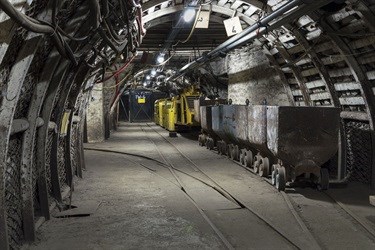Africa will only be able to take full advantage of its mineral wealth once the barriers to collaboration within and between African governments have been removed. Roger Dixon, chairman of SRK Consulting, says although there is plenty of talk about collaboration, more practical commitment to details is needed.

© Eunikas - Fotolia.com
The recent slowdown in mining development as commodity prices soften has heightened this need for better coordination as the high cost of large, game-changing projects demands more parties at the table. He said the annual Investing in African Mining Indaba held in Cape Town in February was an ideal forum for this issue to be explored in more detail. "We look forward to seeing more creative and constructive suggestions from government officials and mining executives on how to turn good intentions into action," Dixon said.
Unspoken issue
"One of the unspoken issues is the difficulty of achieving better coordination between neighbouring countries - and even between different government departments within one country - so that efficiency and shared responsibility can improve a project's chances of being viable. The lack of enabling infrastructure makes it difficult to develop stand-alone projects in just one country. But often there are vested interests in governments and their departments that resist collaboration."
Dixon highlighted the frequent need for greenfield initiatives to be accompanied by substantial infrastructure development, adding huge costs and logistical demands to the usual challenges faced by mining companies.
He cited a common example of a minerals project comprising a mine to extract the material, a rail line to transport it and a port to access global markets. "It is unlikely to find one funder for all aspects of this kind of project - it is simply too large," said Dixon. "So it has to be split up - perhaps even across borders - requiring governments and private funders to come on board in a complex, collaborative effort." An important iron ore deposit, for instance, lies on both sides of the border between the Democratic Republic of Congo and Cameroon.
Plan infrastructure
With improved collaboration, Dixon said, countries within regions could plan their infrastructure together, to help lay the groundwork for private sector-driven investment and job creation. While most countries will present a good story about the projects they plan to develop, they seldom talk to their neighbours about how such projects could be jointly tackled to best effect.
Alongside the need for better power and transport infrastructure, there still remains a lack of government institutional capacity to attract and manage investment within a clear and predictable framework. Even in countries with existing frameworks, it is not uncommon to find 'competitive legislation' that demands conflicting compliance requirements. "Resolving these ambiguities takes real leadership from government, and requires high-level political intervention to align departmental priorities with national imperatives," Dixon said.
Building trust
SRK is already involved in one such initiative, in which the Cameroon government established a steering committee of ministers and senior officials to negotiate an important mining convention with a prospective developer. Engaged as a technical consultant by the government, SRK was able to provide independent input on numerous aspects of the mining proposal, helping remove uncertainty and build trust.
"This kind of process is a breakthrough for how African countries could engage more productively with investors in the mining sector," said Dixon. "Working with different arms of government to find the best financial, legal, technical and socio-economic solutions has been exciting and rewarding. We hope that the model can be tried elsewhere."







































